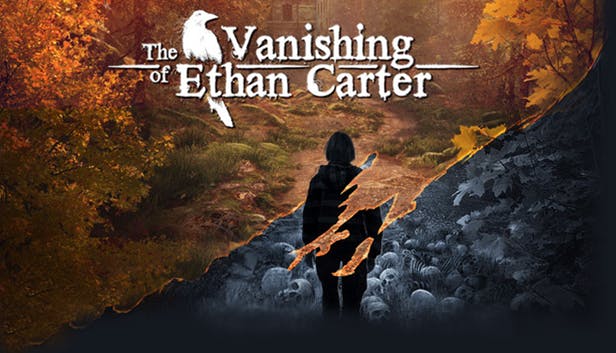(This is an archived old post from the previous version of the page.)
“You should design your next game so you can look down to see an inadequate penis. Then you’ll feel right at home”. Although that tweet – I admit – made me laugh, it was not exactly the kind of feedback I hoped for after the latest post on our blog.

Luckily, there were also so many valuable, constructive and eye-opening comments that I couldn’t really be happier even if I won the lottery.
Okay, the lottery thing is a lie, but you get the point.
These comments were actually so inspiring, that instead of making a regular post mortem, I thought it would make more sense to just quote them here verbatim.
Three things before I do that.
One thing is that I have decided not to add my own comments to any of the quotes, whether they were for or against my hypothesis. I think it would be unfair for me to have a say without the other side being able to respond.
The other thing is that I have kept two best quotes for another occasion. They are simply worth their own separate blog posts. Expect me talking about 1) the silly myth of interactive movies as the only alternative to gamey games and 2) the inability to play and feel at the same time very soon.
Finally, there are some things that worked and that did not work in that latest post of mine. For example, I never wanted to suggest there’s just one way for games to evolve. I tried to explain this and more in the post on the NeoGAF forum. Please treat it as an addendum to the original post.
Speaking of the NeoGAF thread, I quote a lot from it here. I actually made an entire section for these quotes at the end of this blog post. It’s probably an easier read than the original thread, which is 500+ posts long and features a lot of variants of one simple message for me to have a brutal intercourse with myself. For kicks and giggles I quote a few of such comments too.
Okay, let’s do this. I truly hope that any game designer or a gamer interested in game design theory and practice will be able to experience a bit of a stimulating brain-prodding here.
I know I did.
For readability and clarity I don’t always post full quotes, but I always provide the link to the source.
Let’s go!
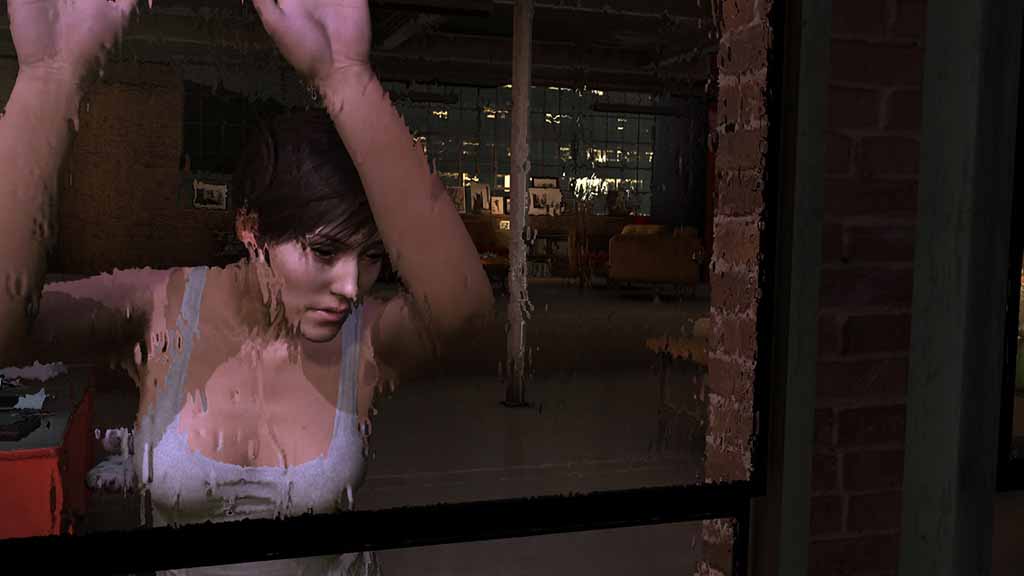
Graham on TIGSource forum: I think he’s misusing the word “emotion.” What he really means is the way games try to make you “emotional” with their stories or whatever. You’re like supposed to be engaged in some murder-something in Heavy Rain but you’re doing QTEs. Emotion – the word – is just misused. What he’s really looking for is, “that deep shit everyone knows they can get reliably from movies/books but not from games.”
Sketchy_Galore on N4G: I have to admit I’m just about done with my first ever playthrough of Silent Hill 2 and loving it but I was thinking while playing last night how strange it is that most of the game is just walking around dark buildings and the few enemies you encounter can usually just be ran past or easily killed. I was thinking about how if this were a modern game some giant skeleton demon would have jumped on me from a closet initiating a QuickTime event fight set to crazy loud Psycho violin music about fifty times by now. I was impressed by how the fear doesn’t stem from the threat of seeing a Game Over screen and having to start again from your last checkpoint, but comes from the atmosphere the game creates.
It did make me think how I would love to see more games like this, in which the thrill comes from the experience you’re having and not from the threat of losing the game.
Joel Goodwin (the writer for Electron Dance) on Twitter: Great moments are often charged through gameplay. Sometimes taking the play out of the game will fuck the moment. Cart Life is feeling the struggle, day by day, the grind. Failure, for the right player, is powerful. My eyes did moisten. (Joel quoted the rest of the conversation in his own blog post here).
Marykate Clark has written a captivating article on the subject, and here’s a sample: We do react to a game as a whole, in retrospect, not solely the peaks. We do evaluate the journey. It’s what makes reviews meaningful. When you replay a game from start to finish is it only your favorite scene that draws you back in?

Nels Anderson (the lead designer of the excellent Mark of the Ninja) on Twitter: Can Dear Esther/Gone Home explore things some styles of games can’t? Sure! But when it’s led by a value judgement of “better”… Most people wouldn’t say that a masterwork of architecture (or hell, even painting) would produce tears, but that doesn’t stunt those media as being capable forms of creative expression.
Paul Eres on TIGSource forum: Does something have to be memorable in order to be good? There are plenty of good things which are not memorable, and a lot of bad things which *are* memorable.
Little Socrates on Polygon: The best thing about all those moments is that they were moments of respite in an otherwise action-packed game, though. Well, not BioShock; the first ten minutes of BioShock are a tutorial that very quickly get a wrench into your hands anyways, though. I do agree that gameplay-less moments can be truly special. Hell, Deadly Premonition fans would happily attest to this; maybe one of the most memorable sections of that game is when you abandon its core gameplay for a moment and play something far easier. But eschewing traditional gameplay from those sequences is to rob them of some of their power; The Walking Dead needs puzzles to space out the hard-hitting moments every once in a while, so long as it remains a game and not a visual novel.
Also, plenty of people are pointing out games like Super Mario Galaxy 2, Super Meat Boy, and Shadow of the Colossus as games where the gameplay speaks volumes. And they’re totally right.
This isn’t inherently “bad thinking,” but it’s an incomplete thought.
AJB on Kotaku Australia: He actually has a good overall point…
However, I think he has incorrectly attributed how humans make memory connections with what humans want, or strive to engage with, in a game. Neurologically speaking we connect with memories when we can create context that is easily related to others. Telling a story is a key way our brains create connections and a human makes better memories when they can relate that information re-iteratively. If we made no impact but still enjoyed the scene before us its very easy to relate it to others.
Humans don’t recount the actions and little steps to a moment in their lives. But if you look at something like a sport as a good analogy you realise the tale of triumph is the outcome of a well enjoyed process that was in EVERY respect mechanical in EVERY WAY. Training, mental conditioning and desire to win are all functionally the mechanic with which we create a success memory. When you fail you reassess those mechanics in an effort to better your approach in future.
And in that line of understanding he has mistaken second nature for a throw away non-gamed aspect of a setting. It was all still mechanics that allowed people to witness an event. Riding a horse into Mexico was NOT mechanic free, it was an action the user saw as trivial only to the outcome. A means to an ends and the designers simply didn’t make it hard to do. When a person climbs everest they don’t say, “I completed 420,000 steps and reached an altitude that allowed me to visually assess my relationship with the altitude of other people.” NO, they say, “I climbed everest, the view was so amazing. I was on top of the world.” And most never recount the hardship (challenge!!) to get there unless asked specifically. Doesn’t mean challenges weren’t experienced and surpassed, it was merely trivial in relation to the victory conditions that are easier to relate.

I do see what he is trying to say about the challenge aspect and I think he is trying to say if we took artificial obstacles away from gamers then they might actually enjoy some experiences more. Picking your design moments for challenge vs reward is something games still don’t do very well yet and can’t ever get right really as all gamers have different skill levels and expectations of outcome. And he is 100% correct about QTEs. We all know it, if not consciously, that QTEs are cheap and stupid. Most would either want some gameplay there or just watch the cutscene the designers are clearly trying to provide but were scared they didn’t provide a game in it.
All quotes below from this NeoGAF thread:
Yet another dev that wants games to be movies and works of art, eliminating fun because it’s not an intelligent emotion. – GodDuckman
hey_it’s_that_dog: Games generally contain so little relatable, convincing humanity, that deep emotional experiences are impossible, whether there is gameplay or not.
He’s right that The Walking Dead has little gameplay (by his definition) and a relatively strong emotional punch, but a single case isn’t good evidence for a sweeping claim like the one he’s making.
Nonetheless, he might be right (about the inverse relationship between gameplay and emotion, not that gameplay should be killed in favor of emotion). The cognition involved in traditional gameplay is surely very different from the cognition involved in processing emotional experiences. It’s going to take some genius-level ingenuity to create a complex and engaging gameplay experience that also invokes empathy or some richer emotional experience than tension or fear or flow. It might not be possible.
BrokenSymmetry: Both “gameplay” and “dying” are overrated, and are holding games back. My best gaming experiences in the last 5 years have been Prince of Persia 2008 and Dear Esther, both of which were criticized precisely for their lack of these two elements.
Riposte: It is impossible to not “play” an interactive story. Most interactive story games are simply role-playing games without combat systems.
I’m quite sick of these developers going through a mid-life crisis. – Riposte
Orellio: Platinum games actually prove his point entirely if you read the quotes in the OP. Bayo and Vanquish are fun as HELL and they have top-tier gameplay, but there is exactly zero emotional resonance in those games. In comparison to his cited example of The Walking Dead game with stunted gameplay yet extremely high emotional peaks it makes complete sense to me. They are two different ends of a spectrum but not mutually exclusive.
snoopeasystreet: A good video game story should compliment its gameplay in a way that makes sense and one doesn’t contradict the other. It’s a thing that most people don’t really think about. To use Uncharted as an example, the story of that game is about a roguish adventure exploring and finding treasure. The gameplay of Uncharted is about an acrobatic serial man following a path killing tonnes of dudes until he finds a puzzle that he must figure out so he can get back on the path and kill more dudes.
Portal is a great example of narrative story and the gameplay story completely complimenting each other. If you were to strip away everything about the prescribed narrative portal, have a player play through it and then ask them what they think the story was, I bet it wouldn’t be too far off from what it actually is. There’s not many games where you can actually do that.

I feel like a lot of people over think their story in games and try to make it something comparable to other mediums out there. If a game has simple mechanics, the story should be simple and a lot of narrative devices such as plot twists only work if it can be supported mechanically.
Hari Seldon: He might be right for the games that he is talking about. Third person action games and single player FPSs. However the more you remove gameplay, the more you better have a killer fucking story to back it up. Not some typical shit video game plot. More and more I have abandoned these type of games and returned to my roots of the strategy genre because the emergent gameplay is simply more exciting to me than a scripted third person game. So I guess what I’m saying is that his theory is worth a shot. There is room for all types of games. You just better have HBO quality writing to back it up.
The artgames movement is the single worst thing to happen to gaming since Horse Armor DLC. – wonzo
RedSwirl: Seems like he had a skewed definition of “gameplay.” All those other things he’s describing still involve interaction and direct control from the player right? That’s gameplay.
DocSeuss: I wrote an essay on this a few days ago, but I’ll summarize it here for those who haven’t got the time to read it (it’s about two pages long).
The key problem is that people assume that video games must be “games,” when really, “video games” is a bad name that doesn’t really encompass all the things that the medium can provide. If we limit ourselves to thinking “oh, well, these games must all feature some form of structured play” (Gameplay), or “oh, they all need to be fun,” we can’t really see the medium evolved.
The medium we call “video games” also produces things like The Stanley Parable, which is more of an interactive, digital essay than anything else.
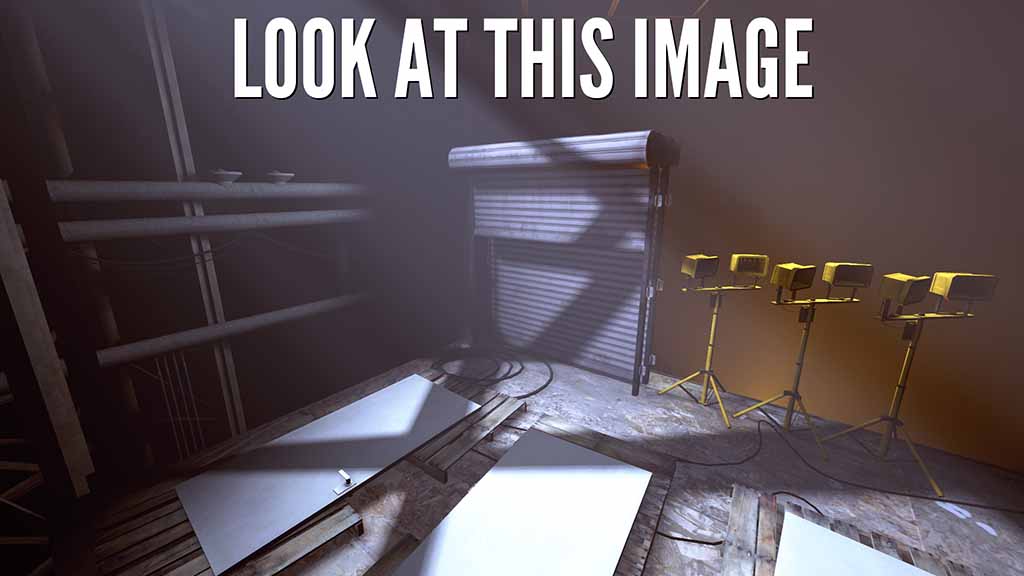
It’s not a collection of games, it’s a new kind of communication medium, up there with books, television, film, radio, and whatever else have you. To call them “games” is somewhat reductive; it’s a holdover from the days of Pong, when all the medium could do was games, and it really limits our ability to expand. The medium is actually larger than just games, though fun and enjoyment are definitely a part of that.
So… yeah, we do need to kill the dependency on “gameplay,” or, more specifically, the need for the combat loop.
A More Normal Bird: You can kill both of these birds with the one stone, but not by removing gameplay, and not by throwing in emotional (read: sad) cutscenes at every turn. Instead, you want more gameplay, but broader gameplay. Making elements such as narrative, worldbuilding, exploration and discovery into engaging facets of gameplay creates a wider range of experience for the player without relying on a constant stream of combat or other purely “gameplay” (quotes indicating the article’s sense of the word) encounters. It’s far easier said than done though and every game has to strike its own balance. Some games are better off focusing solely on what makes them fun to play (fighters, Super Mario for example).
If you want deeply emotional moments then read a book or watch a movie or TV show. A game is supposed to be a game. – Trent Strong
xenist: I kind of agree with what he’s saying. Gameplay as we know it is antithetical to storytelling as we know it. Storytelling is not merely about putting a plot out there and delivering it piecemeal to the player. There’s rhythm involved. There’s timing. There’s psychological manipulation. There’s transferense of the author’s sentiments to the “consumer.” Player agency messes this up. Take the ME 3 brouhaha. It was all about gameplay choices conflicting with authorial intent. The Gameplay Shepard, the one you created after dozens of hours and hundreds of choices clashed with the Story Shepard.
What we have right now in gaming is a bunch of people using tools developed for delivery systems like books and movies, which depend on the “consumer’s” passivity to work and trying to shoehorn them into a medium that requires active engagement. At best they will work well independently of each other but they will never work together.
But what I would prefer is the opposite of what he suggests. We should rip out traditional story from games. At least initially. That way we will naturally develop techniques for storytelling that complement player agency and gameplay. At first this will lead to more games like EVE and Day-Z where the stories are emergent and player driven. Further down the road new storytelling techniques will enable more guided experiences without taking away player agency. Maybe wordlbuilding techniques will develop a toolset varied enough. Maybe something else will.
thomasmahler: It’s interesting to look at how movies evolved – It also started with people simply copying theater and failing, then people like George Melies trying to figure out how to do things that can only be done through the magic of film, then you slowly saw more efforts going into proper storytelling within silent films towards figuring out how to use the camera properly and how to utilize editing to only leave the interesting bits in. And once all this shit got figured out, film became a canvas for artists to use. This process took a lot of time and film, just like games, was first seen as a fluke. What we need are some more visionaries that push things forward by figuring out what works and what doesn’t work for these interactive experiences.
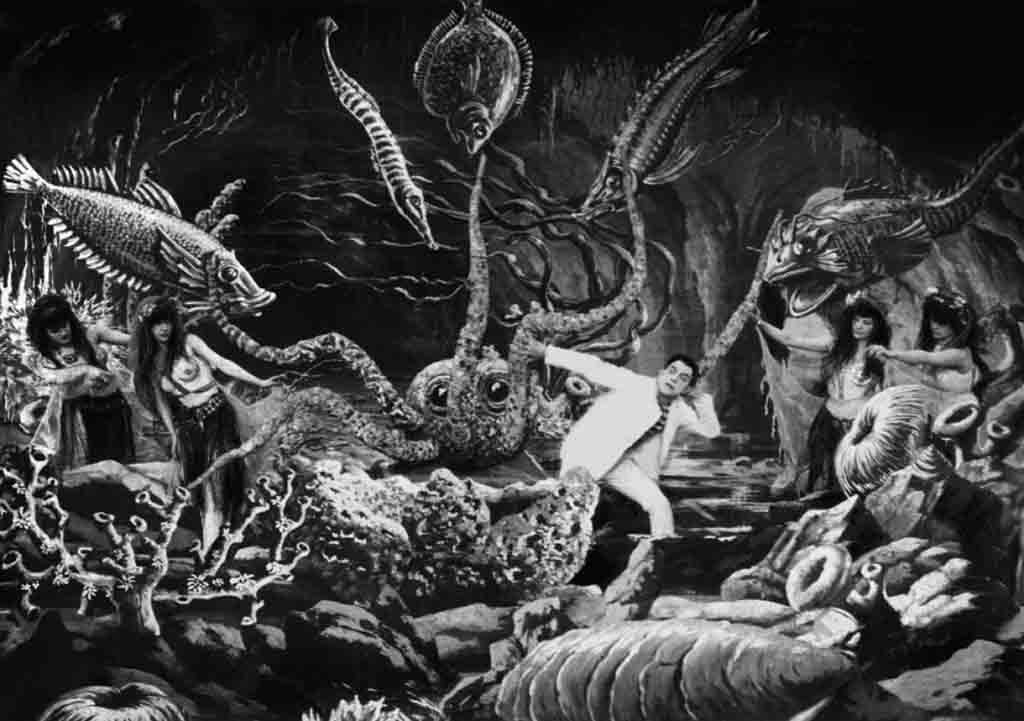
Hydderf Yeah, Skyrim focus is about telling a story and letting a world feel alive. There is indeed no real point in allowing the player to die… But did the decisions you made have consequences on the game’s narrative? I think so. In a way, the challenge here was to make the right choices in order to have the right story developments. If not, what would be the point of your choice? it would be like the choice to turn the page of a book or not at this point :P
I feel bad that no one wants to fund his film and/or purchase the novel he’s writing. I think he’s in the wrong creative industry. – Gannd
drkOne: I agree. There’s games I play because the gameplay is too fucking good and there are games I play because everything outside of gameplay is too fucking good. I think I could put every game that I enjoyed playing in one of those two groups.
I’ve been solving the problem with games which gameplay I don’t care about by picking the lower difficulties. In the end I don’t die and I don’t feel like I’m being told how I should be playing it.
Note that I didn’t understand what he said as “every game should cut gameplay”, I think he meant “if you want your game to be memorable, and gameplay isn’t a point, cut the gameplay”. Which doesn’t mean every game should be Heavy Rain or The Walking Dead.
sonicmj1: I think that perhaps using the word “gameplay” hurt the discussion, because it’s such a nebulous term that can be defined in a lot of different ways. But there’s totally room for all kinds of games. Story heavy games without challenge can be great, and mechanics-heavy games with little to no story content can be great too. They can exist together.
And I think he’s absolutely right that putting the player in the mode of pure utilitarian problem-solving makes it harder for them to engage in certain kinds of emotional involvement. I can think of some counter examples, but they’re rare and pretty particular. They’re certainly not suited for everything. Even in that crucial bridge scene in Ico, I fucked it up my first time through because I wanted to know what was on the other side. And I love that game.
There is an important caveat here, though. Action isn’t good for building emotion, but I think it can set the stage for certain kinds of emotion, both before and after the challenge occurs. In Demon’s Souls, the moments where I feel the most scorned and alone aren’t when I’m fighting monsters, but when I’m exploring an area and anticipating a challenge I have yet to encounter. Or in Hotline Miami, the entire nihilistic thesis of the game happens right after you finish your challenge-conquering and return to your car through the aftermath of your blood-drenched polygonal massacre. The fact that the player will face or has faced challenge is the criteria for those memorable experiences.
I think that’s an important thing to keep in mind. If, as a designer, you’re trying to deliver certain kinds of emotional story beats, every part of the game needs to be examined. Something may be decent enough on its own, but if it gets in the way of the message, one or the other has to give.
Man, that guy just rised the bar again in matter of stupid comments in the media. Seriously, I swear there is a contest we aren’t aware of. – Ranger X
Kageshinzo: The problem is that his idea of a “better game” is one that delivers an “emotional experience” at the expense of “gameplay” when the two doesn’t need to be mutually exclusive. Case in point: Shadow of the Colossus.
For most of the game, you are basically going from point A to point B, figuring out how to kill each colossi, and not once is the story intruding into this gameplay. But after each colossi, something happens to you that is only shown in a couple of seconds, when shadows from the colossi get into you and, unless you’re unobservant, you would notice that Wander’s physical appearance and demeanor changes throughout the game in subtle steps: he becomes much less active, as if each ordeal has taken something from him, he looks much more unkept and pallid. You don’t notice this because you’re so engrossed by the gameplay of killing colossi until it hits you in the end, when the ending happens. And BAM, you’re watching, emotionally stirred, as Wander tries his best to hold on. And what’s more, you control him at this point, and this only makes everything that much more bleaker.
All of it wouldn’t have the same emotional impact if you were only watching Wander killing the colossus, or just pressing stupid buttons in QTE style every now and then. No, you felt that resonance at the end simply BECAUSE you were an accomplice in what happened to him. You were not just a spectator. YOU were responsible.
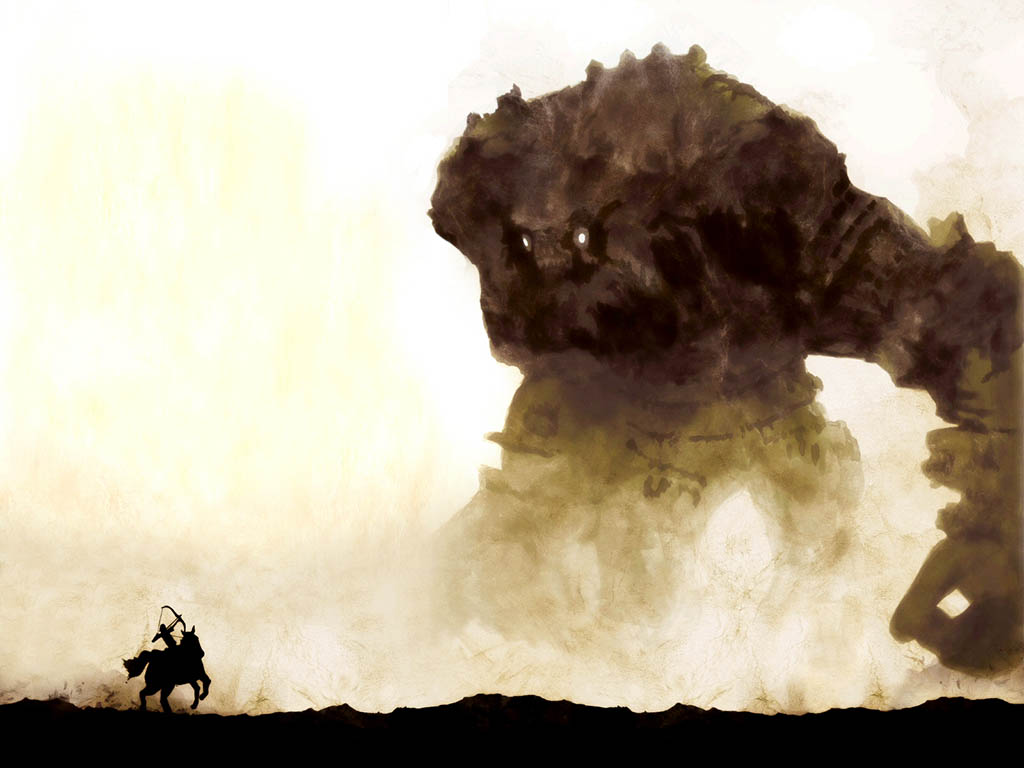
Time was when a game used to be all about overcoming goals to save the princess at the end of the castle, or save the world, or get some stupid banana at the end. The ending was a reward for a job well-done. Story was just a background to the gameplay and all this happened because developers did not have the technology to join both in a seamless, equal way. That’s not the case now, but to imply that we have to remove one in order to get a “better game” is just idiotic. Any game developer who needs to sacrifice one over the other and trying to justify it is just covering up for the fact that he’s bad at creating games. Nothing more, nothing less.
Adrian Chmielarz can still get what he wants and still brand himself as a game developer though. He can create his vision of this game and then market it as an interactive movie. Then let the market decide. Let the gamers decide. There’s no need for him to preach that gameplay needs to go. The video game umbrella is wide enough for lots of genres, and one more couldn’t possibly hurt.
